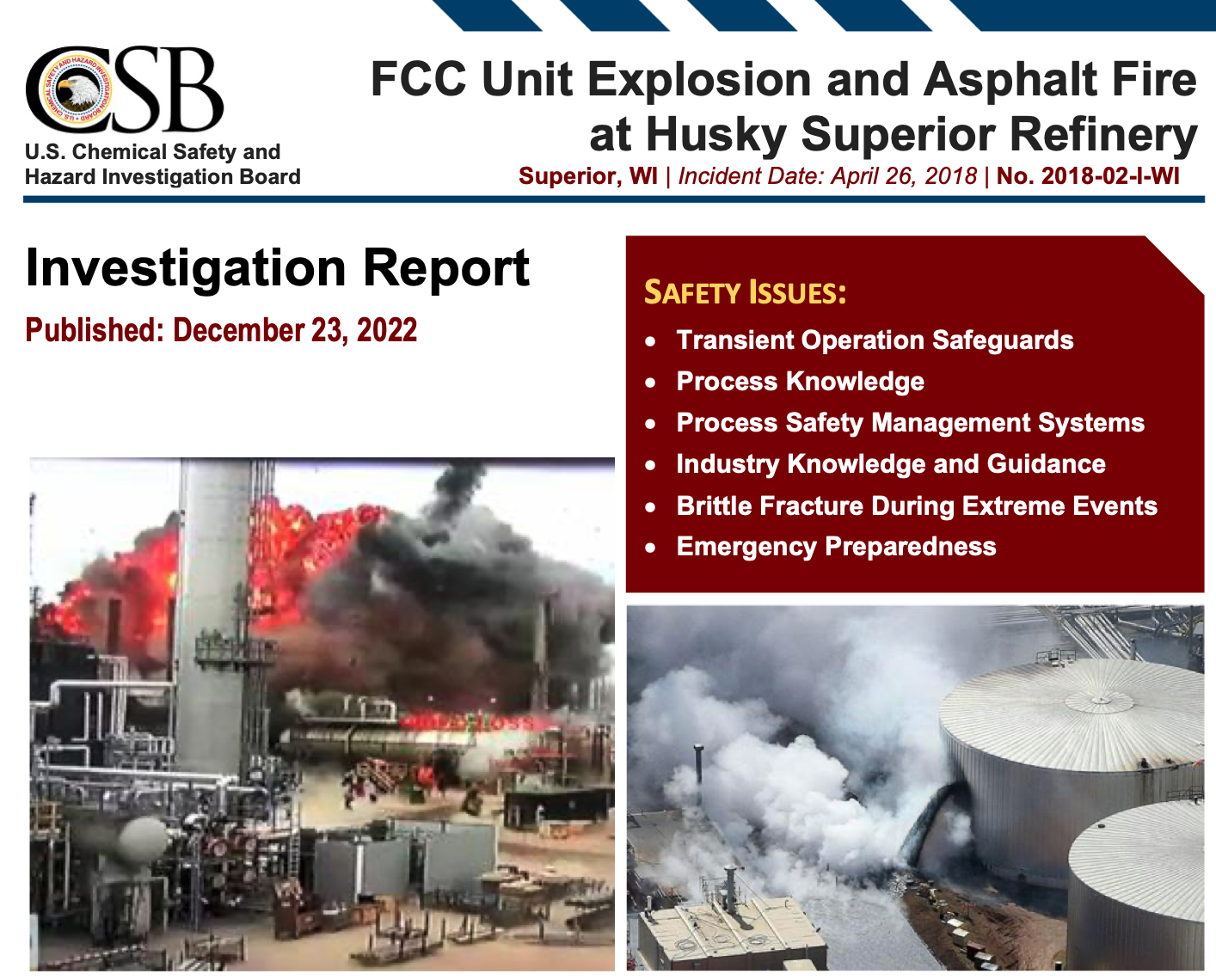US CSB Report on Husky FCC Unit Explosion & Asphalt Fire

US CSB Releases Accident Investigation Report for 2018 Husky Refinery Explosion
The US Chemical Safety Board released the final report on the 2018 explosion of the FCC Unit at the Husky Refinery in Superior, Wisconsin. Here is the LINK to the report.
The CSB report highlights:
- Insufficient Safeguards during transient operations
- Insufficient process knowledge by refinery employees
- Failure of process safety management systems
- Inadequate industry knowledge and guidance for FCC Unit operations
- Use of older brittle metals that fractured into shrapnel instead of newer technology grades of steel that would have a ductile failure.
- Inadequate emergency repose to a large, flammable asphalt spill.
Read the report and leave comments below if you have additional insights.



